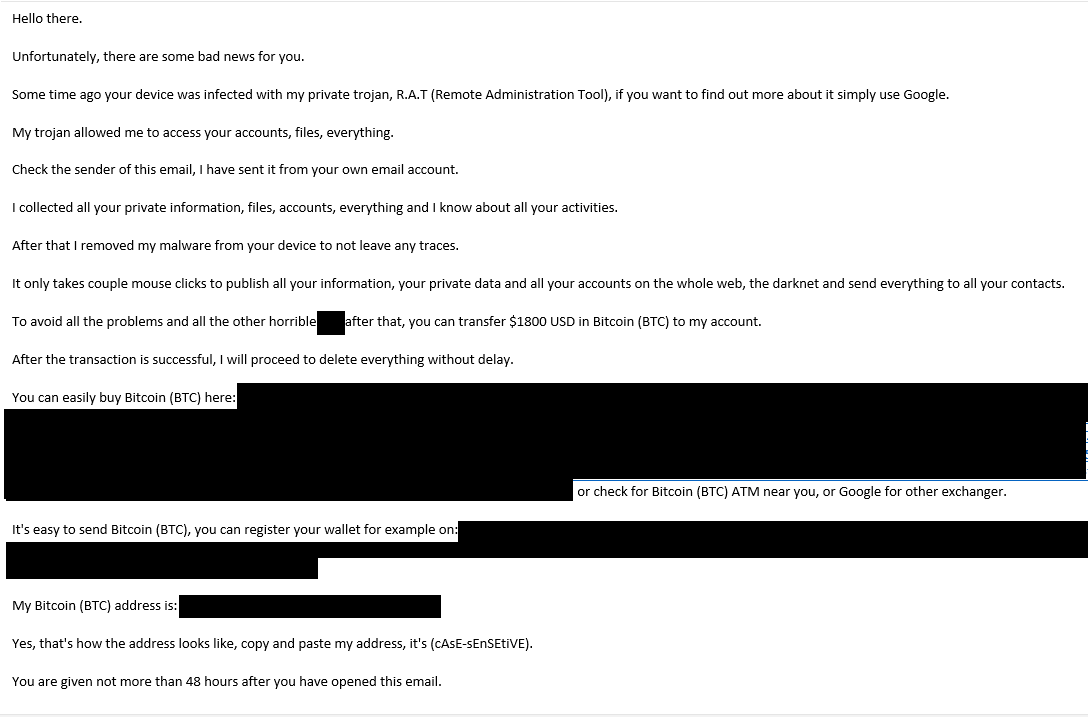An extortion scam email is currently circulating through the Carleton community.
These scams typically attempt to convince you that your email or computer has been compromised and accessed by the scammer. The From address of the email may be spoofed to look like the email came from someone you know or even from your own account. The message will often demand payment in the form of bitcoin, gift cards etc. to prevent your personal information from being exposed or shared with others.
DO NOT provide any personal information, send a reply, nor interact with the sender in any way.
See an example extortion scam below.

How can you tell if an email or online post is a scam?
An email is likely to be a phishing scam if:
- it appears to come from someone at the university, but has an [External Email] tag, it may be a phishing message,
- it requests a fee to apply for a job or asks you to send money, Bitcoin, gift card, cheque, etc.,
- it requests your password or directs you to a webform asking for your password,
- it contains an immediate action such as “download this now” or “click on the link below”,
- it tries to invoke an emotional response to get you to take an action without thinking, and
- it is filled with spelling and grammatical errors.
For more information on scams and how to protect yourself, visit the Canadian Anti-Fraud Centre .
If you suspect you may be a victim of this type of scam, please contact Campus Safety Services immediately.